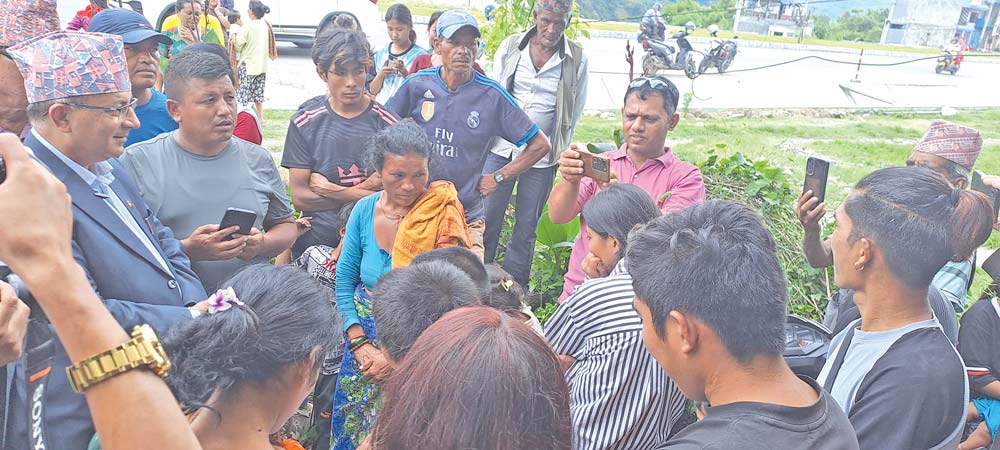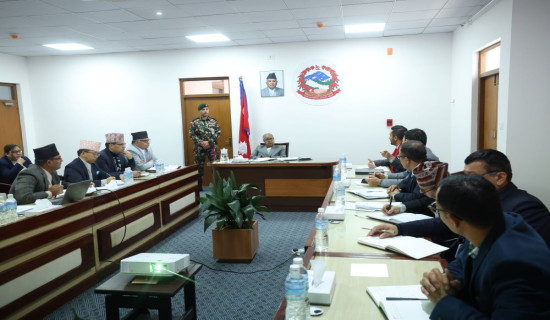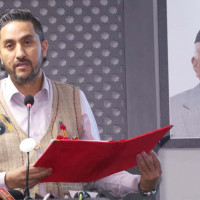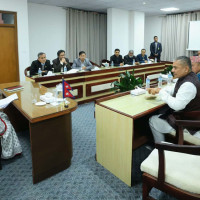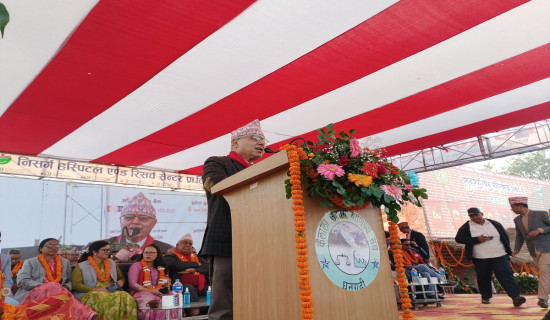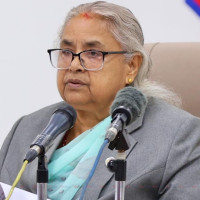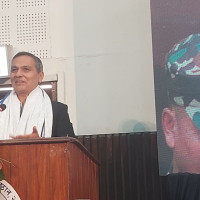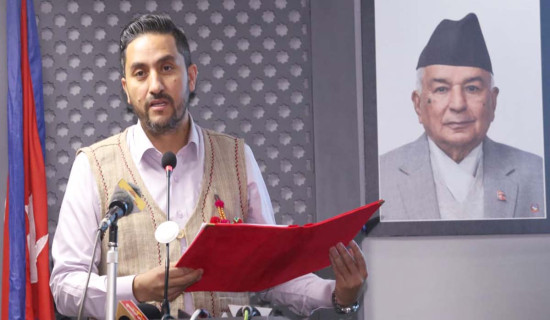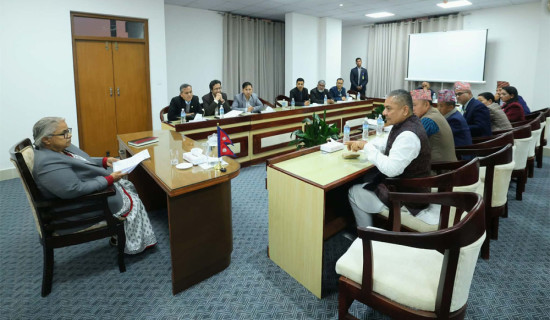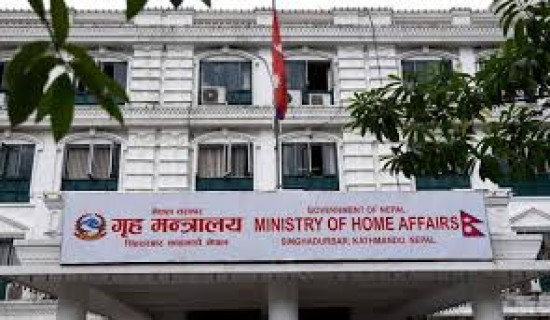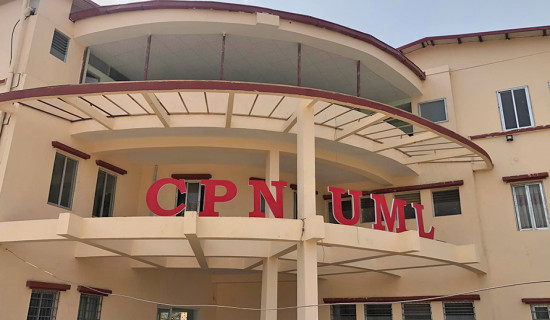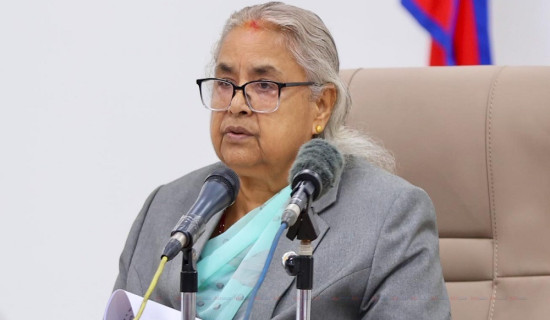- Tuesday, 9 December 2025
Hayu family returns home after assurance of debt pay off
By Phadindra Adhikari
Lekhnath, Aug. 5: There’s a Nepali saying, “Better to incur debt than to face misfortune.” But for Urmila Hayu and her family, this saying does not suit.
The Hayu family from Bikhar Kateri in Golanjor Rural Municipality, Sindhuli, had lived with debt for years. Three years ago, things took a tragic turn when Urmila’s husband went missing, only his skeleton was found later. The cause of his death remained a mystery.
The hardship worsened as Urmila’s children frequently fell ill, and even her sons who had gone abroad returned home and could not support the family.
Eventually, the Hayu family decided to leave their village and move to Pokhara to make a living through labour.
On the night of July 25, at around 1 am, the Hayu family quietly left their home. However, the neighbours noticed the situation, only after seeing a buffalo tied up, goats roaming free, and chickens left behind. The house was locked, and there was no trace of the family.
Two days later, the family arrived in Pokhara, where they found support from their son-in-law, Dhan Bahadur Tamang.
However, the news of their disappearance spread quickly, and security forces worked to find them. The Hayu family, however, refused to return to the village, telling the authorities they were determined to live in Pokhara and earn a living through daily wages.
A few days later, Rabin Kumar Shrestha, the ward chairman of Golanjor-6, travelled to Pokhara to bring them back. Despite his efforts, the Hayu family stood firm, saying they would not return to their village.
Shrestha concerned about the Hayu family’s well-being, reached Pokhara for the second time via flight and convinced them to return with him. The family then returned to Sindhuli in a reserved motor managed by Ward Chairman Shrestha.
He made arrangements for them to stay in his own home temporarily. He also promised to help them find a safe place to live and a way to pay
off their debts.
The local government and municipality leaders expressed their support, promising to help the Hayu family rebuild their lives.
The family owes around Rs. 75,000 to a bank and Rs. 150,000 to individuals.
After receiving assurances of support from local leaders, Urmila’s family agreed to return to their village.
The family, which includes 16 members, six sons and six daughters, many still of school-going age, had previously left due to lack of a nearest school and frequent illness among family members.
Their eldest son, Raju, shared that these challenges had forced them to leave their education behind.
Now, encouraged by the promise of local support, they are making their way back home. They are hopeful that this new beginning will lead to good fortune for their family.
The Hayu is the most vulnerable ethnic group, consisting of approximately 50 households in Golanjor-6.
The Hayu community is concentrated in eastern Nepal, particularly in the districts of Ramechhap and Sindhuli. According to the 2021 census, their population stands at a mere 3,059 individuals, representing 0.01 per cent of the country’s total population.

